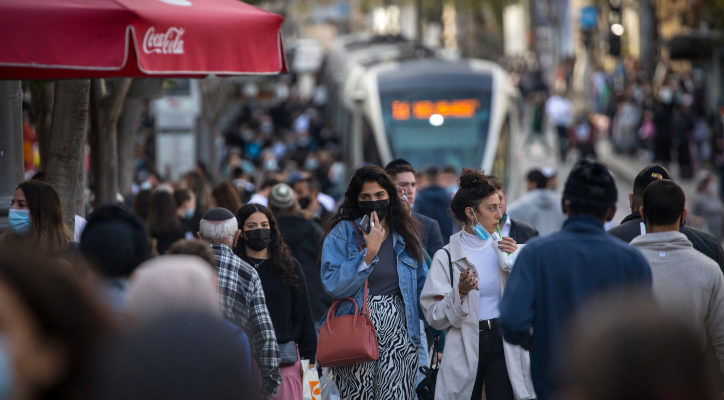“We wasted precious time and the morbidity situation leaves no choice – the health of the citizens of Israel must be maintained,” said Health Minister Edelstein.
By Lauren Marcus, World Israel News
Prime Minister Benjamin Netanyahu is considering imposing a third lockdown next week to stymie rising morbidity rates and mitigate the risk of a new super infectious coronavirus strain originating from the UK.
Although Netanyahu said during a press conference Sunday evening that there was “no evidence” the new strain is resistant to the vaccine, he allegedly told officials in a closed-door meeting that he believes a third lockdown is necessary.
According to the Health Ministry, some 3,600 new cases of the coronavirus were reported on Monday, with 4.2% of tests returning positive, the highest numbers in months.
Health Minister Yuli Edelstein told Kan News, “We missed the tight restraint train – there is no escape from a lockdown.”
“We wasted precious time and the morbidity situation leaves no choice – the health of the citizens of Israel must be maintained.”
The Director General of the Health Ministry, Professor Hezi Levi, echoed Edelstein’s comments.
“The dimensions of the disease are skyrocketing,” he told Kan News. “I believe the cabinet will convene soon. I’m not sure tightening restraint will be the cure. We may have to set a date and go into closure.”
On Tuesday, the coronavirus cabinet agreed that starting this Wednesday, all Israelis returning from abroad will enter mandatory quarantine in state-run coronavirus hotels.
This is a marked departure from the previous policy towards international travelers. Until now, travelers from so-called “red” countries with high infection rates were permitted to quarantine at home. Travelers coming from “green” countries with low infection rates were not required to quarantine at all.
Although Israel recently launched a mass vaccination campaign, with nearly 30,000 Israelis receiving the injection in just two days, officials are skeptical that the vaccinations will have an impact on morbidity rates before March 2021.





